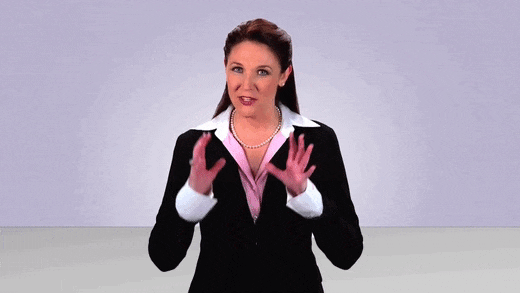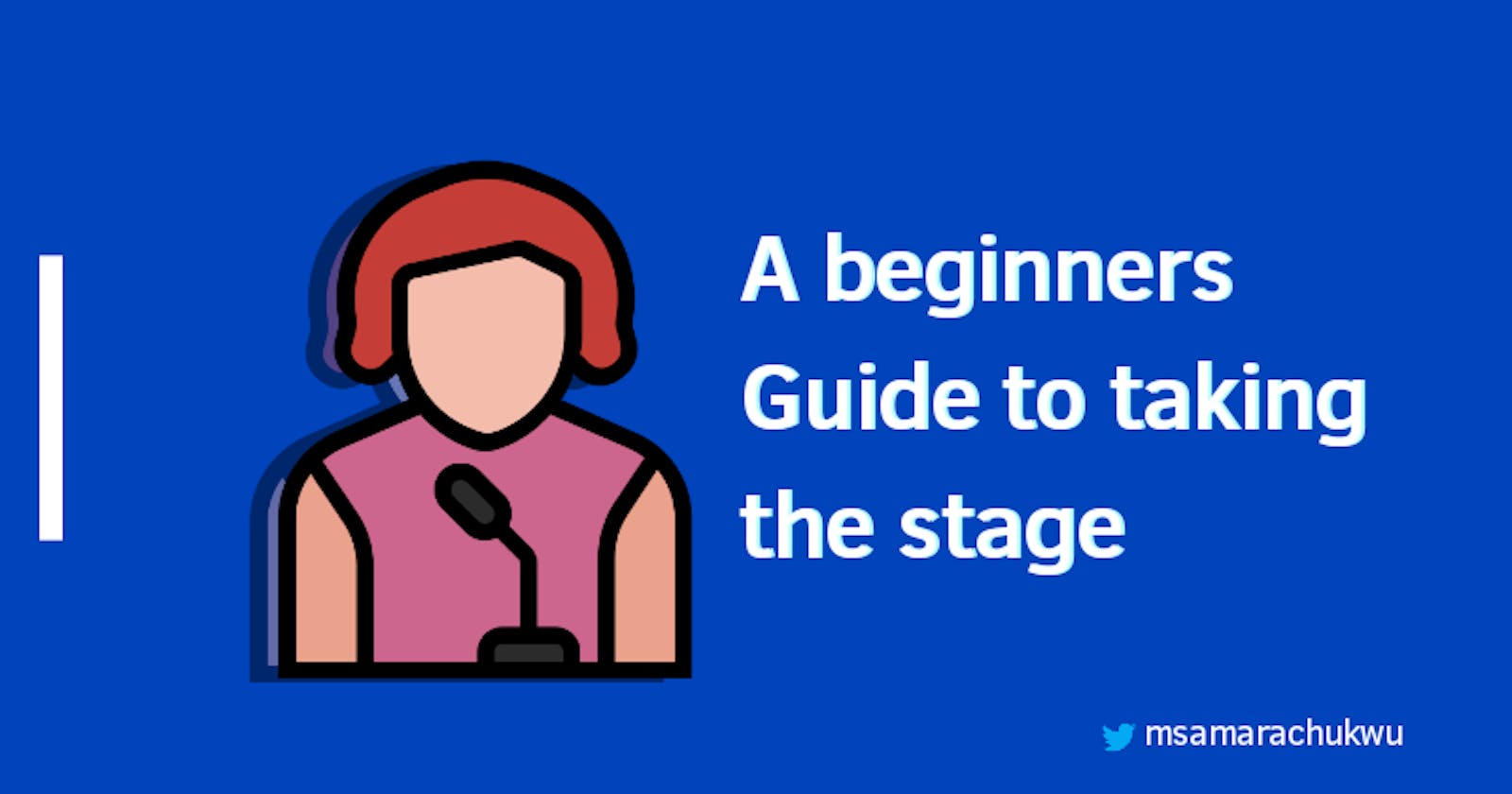Have you listened to @unicodeveloper , @aniediudo @kentckodds speak at events?
How do you feel afterwards? Probably you do wish to speak the way they do? Hold your audience captivated, in awe, attentive while laughing and giddy at the same time. You want to be able to own your stage and pass on your message without feeling intimidated, just the way they do.
In this article I'll highlight some basic things you should do in order to become better at speaking. It doesn't matter if it is just a small study group, a city chapter or a global conference, the trick is the same.
Introduction
Having attended a couple of tech events and seeing a pattern repeat, again and again, I decided to put together this article of things you should know before taking the stage to deliver a speech at any tech events. I'm not promising it will rid you of the stage frights and the shiver that envelopes you and threatens to make you drop your mic, But I'm pretty sure it'll help.

Why this topic?
Now, in case you're wondering why I've chosen this topic especially at this time, let me remind you that a lot of physical tech events which were laid off due to the pandemic will be happening as soon as the pandemic and lockdown is behind us. Various communities will be holding tech events and I believe you've equipped yourself so much and have probably designed your slides and contexts ready for submission at the sound of ready...go!
But you have to hold on a little moment, get yourself ready for impact.

The Problem
You've probably been at events where the speaker can't seem to hold the crowd together, constantly fiddling with his/her buttons and sometimes staring at the screen in order not to behold the searching and judging eyes of the crowd. You sit there bored and tired, waiting earnestly for the session to be over with. Well, it could be you up there.
We are always amazing speakers when we are talking to ourselves in our closets or with friends, and that I've realized is one of the problems. You feel you've known enough, you know how to code and hence everybody must sit and listen, no matter how boring.
Now let's get into the what and how
The word "taking the stage" means having control over the entire audience and not a few people seating in front as I've noticed with some people who speak in such low tone that people seated at the second row can hardly hear them. Not that this is your fault entirely, but it will be okay to genuinely ask someone about how you did. Demand the person to really tell you the truth so you can take pride in the things you did right and try making amends for the ones poorly done.
As a developer who really wants to share knowledge, you need to learn the art of public speaking, even if not professionally, but enough to capture your audience's moods, keeping them glued and informed throughout your speech and until your message is totally passed. Remember communication is not complete until it has been received from the sender. Hence, when delivering a speech you need to be sure that the audience are grasping your message if they aren't then I'm sorry, your communication wasn't effective.
Here are a few things you should do before and during your speech:
1. Prepare:
No matter how conversant you are with your subject topic and the number of times you have spoken in the past, it is still vital that you take your time to prepare for your speech. Some of the things you should consider while preparing:
a. Know your audience:
You should be able to ascertain the type of audience you'd be engaging with. If the are males only, females only, beginners, intermediates, experts or a mixture of all the above. Knowing this will not only help you know the tone of your conversation but will also be helpful in determining your content. You can learn more about how to connect with your audience in this article by @didicodes
b. Be conversant with your slides:
I've been at events where the speakers totally back the audience in order to read from their slides. The worst is when there are technical difficulties and the slides delayed for a few minutes before coming up, then you see the speaker lacking for words to hold the crowd while the issues are resolved. It is important you make out time to study your presentation before the D-day to avoid the lapses that may result from not doing so. There's never any of your favorite speakers who doesn't take his/her time to study, and you have to do so as well. Also, send in your slides early.
c. Rehearse:
Rehearse your presentation, especially if it is your first time delivering a particular speech. An efficient way to present would be present in front of a mirror, but I usually choose to present to a real live person, get feedback and make corrections. Better to fail privately than in a room full of people.
d. Prepare:
If you'd be live coding, ensure you installed all software and extensions you'd be needing in the system you'd be presenting with. Test your codes alone and ensure they're working fine before the D-day. Double-check a few hours to the d-day to avoid using the words "Coding will embarrass you" at the end of your speech.

2. Think conversion, not presentation or demo:
You have to get the fact that you are standing on the stage to communicate with the audience in a conversational way. Remember, communication is never complete until the receiving end properly receipts the information being communicated. Having a conversation with the crowd puts you ill at ease, reduces the jitters and improves communication.
3. Be empathetic about your speech:
You must have heard these lines "Effective communication is 20% what you know, and 80% how you feel about what you know." Your audience are more likely to feel captivated by your speech if your speech comes as an extension of your feeling rather than just words without expression.

4. Hook your audience early:
People's attention span is reducing terribly and if you're not able to hold their attention in the first few minutes, the hall might erupt into a state of frenzy with people staring at their phones and PCs all through your speech (Techies and gadgets thing). Hence, it is important you make them interested in the subject you'd be talking about. Remember, they came to hear you, but you have to show them why. Try using the following to hook their attention:
- A story
- An example
- A strong statement that makes people think, “tell me more.”
- Ask a question
- A visual metaphor
- Get straight to the point and jump right into the issue.
That's all folks! If you read up to this point, thank you so much for reading. I hope you found this article useful. You can also follow me on twitter .

